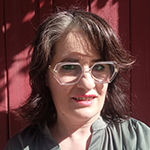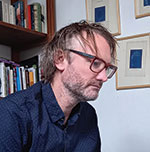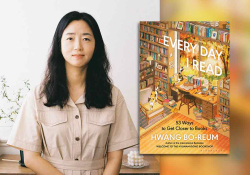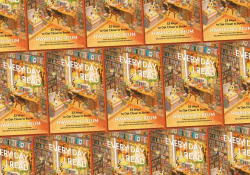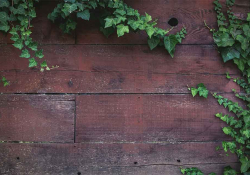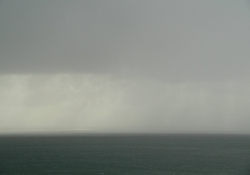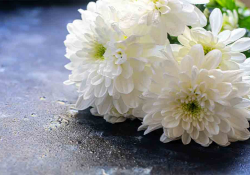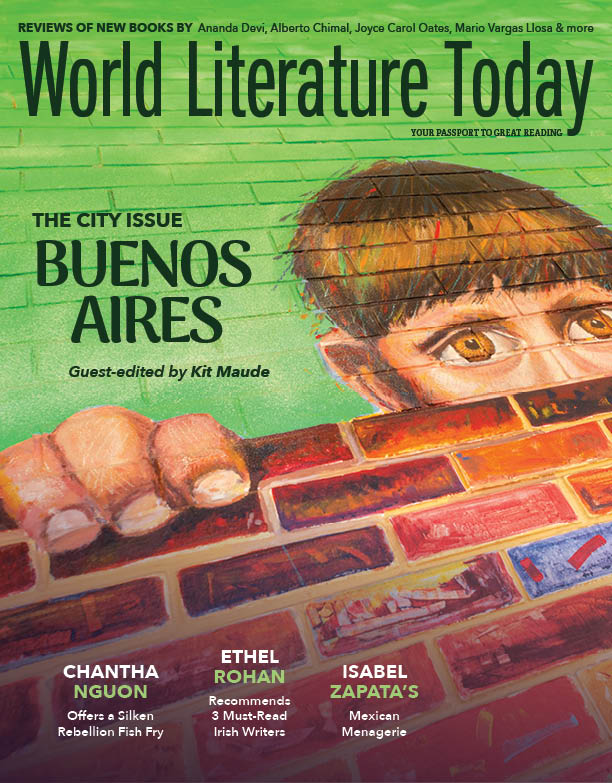Structured Poetry
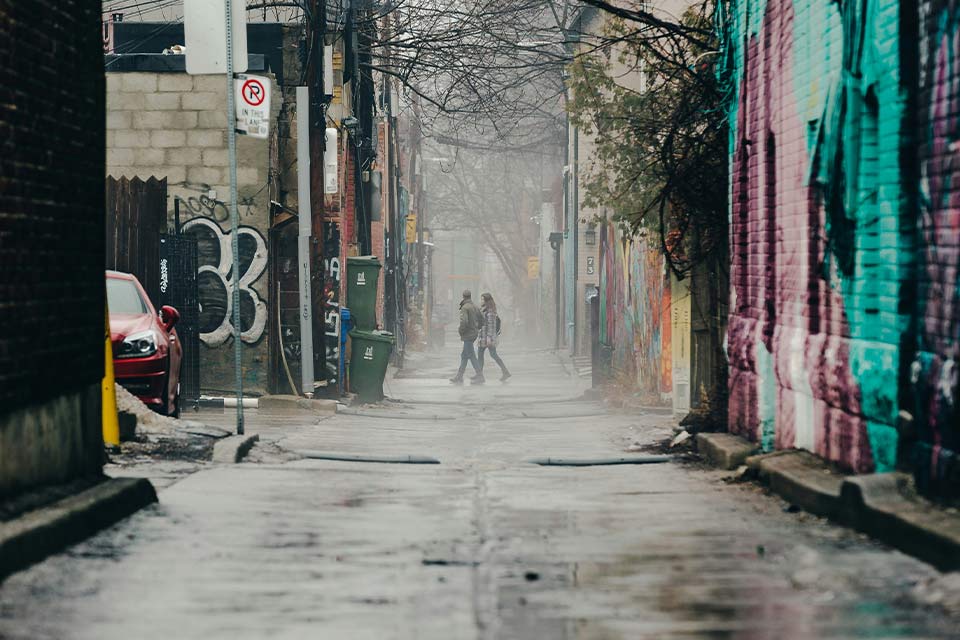
Buenos Aires is many things, including a city for walking, snapping photographs, and writing poetry in notebooks while nibbling a medialuna in a coffee shop. Porteña writer Cecilia Pavón lets us peek into her notebooks as she wonders, Why can’t life be just drinking coffee and writing in notebooks with soft covers?
It occurred to me that this notebook ought to be called Structured Poetry after I was walking down Calle Florida and bought a pair of pants made from rubbery black fabric, lovely pants that made me want to start wearing clothing with contours again. No more loose-fitting, unstructured clothes like the sweatpants I wore for years.
During that time, I was completely won over by the “athleisure” trend, a portmanteau for what used to be called “gym clothes.” Today I have decided to restore stiffer fabrics and “structured clothing” to my wardrobe and also to pay more attention to the structure of poems. I shall start writing “structured poetry.”
* * *
I don’t know what “structured poetry” means exactly, but I’ve set myself the challenge, in secret, without telling anyone. I will assemble the poems like scaffolding rising into the air before transforming them into a portable heart.
* * *
What if, instead of “structured poetry,” what I really meant was a “structured life”? Yes, I’ve always used poetry to structure my life, not the other way around. At the age of fifty, I’ve finally come to this realization. To begin with, using poetry to structure your life gives you a different perspective on time.
* * *
Personally, I don’t really believe I’m fifty because in the world of poetry, which I first entered at age seven when I wrote an ode to the sun, one doesn’t have an age. Or we’re eternal children, reciting rhymes and counting syllables after laying our heads down on the pillow before going to sleep. Just now, over breakfast, Claudio, the love of my life, told me that the only ethical thing to do in literature is to ensure that a love of books is preeminent over everything else. Or something like that—the old familiar idea of poetry as a space where one has no interest in mundane or earthly matters. I really don’t know what my opinion is. I have mundane interests, and I won’t deny that I’ve always dreamed of earning money from poetry. I’d like to combine a disinterested love for the words and syllables and tones that poetry creates with living well. And to live well, you need money. Money with which to buy free time.
Because to have a different perception of time, to escape the earthly sphere, you need to have free time. Really, you just need enough time to go out and wander the streets with a little notebook, on the hunt for poems.
* * *
By hunting for poems, I mean that I believe that the poems are out there, living in a kind of fifth dimension, and poets just need to go out looking for them. Not that it’s as easy as it seems. . . . The tricky part is finding the right method for entering that unknown dimension. To open up the lid of the chest where all the poetic treasure is to be found, you need to live in a special way that no one can teach you. For each physical body and soul there is a specific way of switching on or opening up to the fifth poetic dimension.
I don’t know if I’m a poet or not, but I possess dozens of handwritten notebooks full of attempted poems, and that makes me very happy.
* * *
The street is horrible. Week after week, more and more people gather to sleep on my block. From Alberti to Rivadavia, it’s full of trash and crumbling sidewalks . . . but that’s how it is. Today I went out with five old notebooks in my handbag, notebooks from another time in my life. I keep all the notebooks in which I once tried to write poems in a special section of my bookshelf. I’ve never kept a diary; I’ve always tried to reflect what is happening in my life in the form of free verse. I wonder why? Before tablets and Google Drive existed, I always went out in the hopes of finding a poem along the way. I don’t know precisely how old I was when I started going out with a notebook in my handbag, but I was very young. Now I have dozens of notebooks covered in scribbles that act as a kind of parallel memory lying dormant on a dark shelf in my living room.
I pick one at random and open it.
In addition to entering the fifth dimension, to be a poet you have to have abandoned something.
It has a green cover bound with two blue ribbons. The cover reads “Poetry Notebook” in gold lettering. I bought it in the United States. (I first went to the US in 1997, having received a scholarship for a master’s program, which, fortunately, I subsequently quit. I’m a dropout: in addition to entering the fifth dimension, to be a poet you have to have abandoned something.) The first page reads:
“May 1997”
When I see this, I remember that in 1997, when I was twenty-four, I still thought it was important to date poems. In time I found that poetry is circular, that writing poetry is, as I wrote above, like stepping into another time.
In time I found that poetry is circular, that writing poetry is like stepping into another time.
* * *
I open the green notebook and copy out the first thing I find:
I saw love and it was a person,
a me dressed as a swan.
I don’t remember writing that poem. That’s the wonderful thing about living in the company of my past poems. Although they’ve never been published in a book, from the shadows of my bookcase they can always reveal a part of myself I had forgotten about.
And, I’d venture to say, perhaps when I’m dead, if someone wants to make contact with my ghost, the best way to go about it would be to open one of the notebooks and stare hard at my handwriting, at the strokes, sometimes elegant, sometimes scratchy, which I regard as a portal into the beyond. I’ve always believed that God, or the infinite, slips through the gaps in letters.
* * *

After spending a large part of my afternoon watching it rain and hail, once the chubby stalks of my yellow bromeliads had filled with little ice pebbles, I decided to go out for a coffee on the corner. My living room is wonderful—it has a terracotta ceramic floor and a glass door that opens onto a lush, almost junglelike garden. And I love being here, but I love the street more, I love being out of the house more. This morning I realized that I must have inherited that love from my grandfather José, the son of Spanish immigrants, who spent every afternoon in a place called Casa España in a province of Argentina. I remember being at his house and hearing someone say, “He’s at Casa España.” Women and children weren’t allowed in, and basically what they did there was play cards and chat with their friends. I remember him being very happy coming home from Casa España, a house other than the family home. Today it occurred to me that maybe it’s where I get the urge to go out for a coffee. Maybe it’s something in my genes.
In the Café Harvard, whose clientele is exclusively old men who could be my grandfather, I spread my notebooks across the table, take one, open it, and find the following lines written in red ink:
I don’t want my life
to be a psychological novel
I’d rather it were a song
Reggae, bossa nova, hip-hop or pop
I don’t know when the poem’s from exactly because this notebook isn’t dated. But I can see that I am still of the same opinion. The other day a friend asked me what it is that makes you an artist, something innate or something learned? You could say that my desire for my life not to be a psychological novel is innate. It has been my wish since I started writing: I never wanted to find psychological explanations for reality or to describe the world. For me, poetry always was and shall be a form of flight.
For me, poetry always was and shall be a form of flight.
* * *
My little daily ritual, my minor spell, is to go for a coffee and have a medialuna glazed in syrup in the Café Martínez in Once and to bring all my old notebooks with me. It’s like carrying my past around in a handbag, just in case I want to ask it something.
I would like to spend forever sitting in a café in my neighborhood, alone at a table for four, surrounded by books and my old notebooks, writing in this or some other notebook. Why can’t life be just drinking coffee and writing in notebooks with soft covers? I should make that my living, get society to pay me for writing in notebooks. Not books, notebooks, handwritten ones like the ones keeping me company right now.
* * *
I ask my old notebooks if I shall ever be rich. (I swear to God that I just opened one by chance and came upon the following page:)
Vanity
I have donned the suit of vanity
to cross the sea
the earth is very dry
I have to swim
(The last page of the notebook is inscribed with a date: September twenty-fourth, two thousand and three.)
* * *
It’s afternoon at the L’Accademia de la Pizza bar on the corner of Coronel Díaz and Güemes. How wonderful it is to be on the move, to travel, to hop from one neighborhood to another for different reasons and transform ordinary old tables into a passing refuge.
I came to this neighborhood to cash a check with three zeroes for an online talk I gave at Columbia University in NYC. It’s amazing to be earning such a large amount of money (it’s not that much, really, nothing compared to the sums the truly wealthy deal in) for talking about poetry. It makes me feel guilty. Yesterday, during my online workshop, Carolina said that money is energy but also tears: I think that sums it up very well. You’re always having to deal more or less with the status quo, with publishing conglomerates or governmental or nongovernmental institutions. You can’t get rich dreaming of a different world. I’d prefer to dream of the different world and live outside of the structures of the status quo, which is why I have published all my books with independent publishers in Buenos Aires. And, like I said at the beginning, to me being rich means having free time.
But I don’t want to talk about money, I want to talk about what it’s like spending your life with a notebook in your handbag. To be an artist and dedicate your life solely to your art, which is to say your poem, you have to forget about money and survival completely. You have to fake dementia and act as though God hasn’t yet cast you out of paradise so you can live without working.
* * *
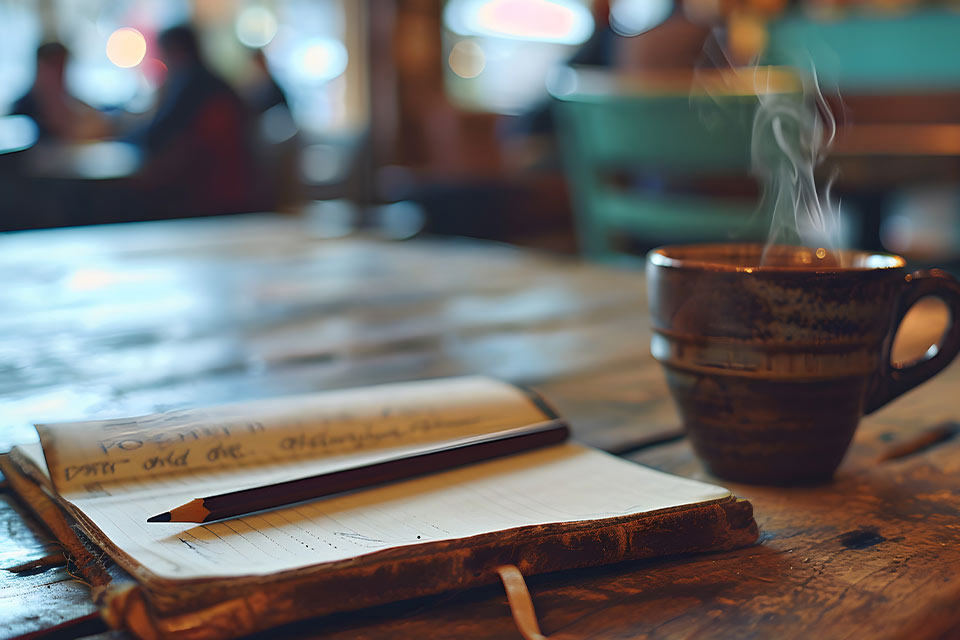
Earlier, upon witnessing a perfect image in the street, I remembered the year 1992 when I moved to Buenos Aires and took a photography workshop at a community cultural center.
“The camera, framing, and light aren’t important,” said the professor. “What matters is what’s there before you take the photo.”
I can’t remember the exact phrase, maybe it was something more like, “What matters is the state one’s in when the photograph is taken.”
I liked that idea very much, that what mattered in the creation of an artwork was the state of the person creating it. It was like being an object or something. In 1992 the only thing I cared about was walking around Buenos Aires, looking for photos. It was wonderful. No one anywhere back then could conceive what it would be like living and walking around with a cell phone with which one is able to take dozens of photographs per second, a phenomenon that would lead to a more or less generalized indifference to good photography. Who would have imagined in 1992 that thirty years later no one would care about the state they were in when they took a photo, because taking photos had become more or less like breathing? Today I felt nostalgic for 1992, when no one had a cell phone and barely anyone had a computer.
Today I felt nostalgic for 1992, when no one had a cell phone and barely anyone had a computer.
Poetry, however, was spared. Today, just like back then, I write poems by hand in ordinary notebooks or exercise books I buy at stationery stores.
* * *
Today I think of a notebook as a tool for getting closer to the world. I’m not sure whether it helps to understand the world, because the world is incomprehensible, just to get closer to it. To give you an example: since I sat down to write in this café, night has fallen, and for a moment I forgot where I was and what day it is.
Buenos Aires
Translation from the Spanish
